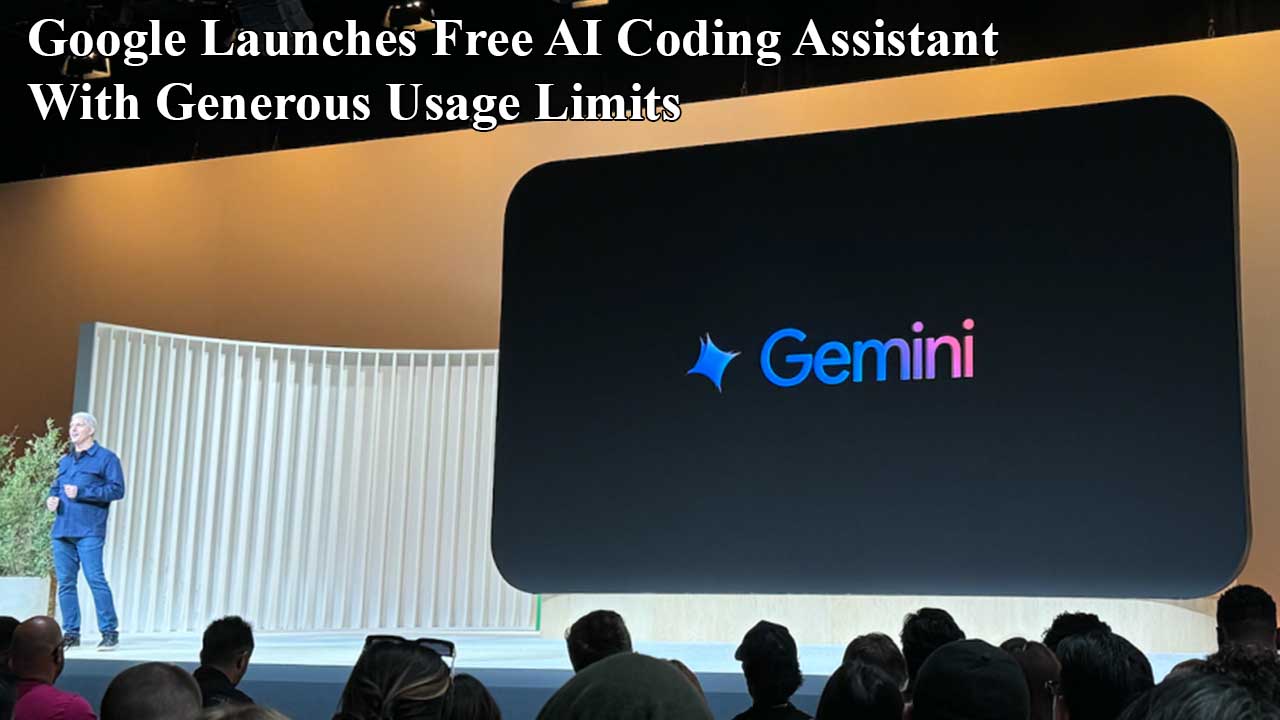
Google has just launched a free AI coding assistant for individual developers, and it’s creating a lot of excitement in the tech world. This new tool is designed to help programmers write code faster and more easily, and it comes with usage limits that are surprisingly generous. For developers wondering how this could affect their work, this launch could be a big deal, and it’s worth understanding why.
The tool is called Gemini Code Assist for Individuals, and it works smoothly with popular coding platforms like Visual Studio Code and JetBrains IDEs. It can assist with all kinds of tasks, like spotting and fixing errors, finishing incomplete code, or even explaining tricky sections of a project. It’s powered by Google’s Gemini 2.0 AI model, which has been specially trained to handle coding challenges. This makes it a smart and reliable helper, even for big and complicated coding projects.
One of the standout features of this tool is its usage limits. The free version lets developers generate up to 180,000 code completions every month. To give you an idea of how much that is, a competitor like GitHub Copilot only offers 2,000 completions in its free version. With Google’s tool, developers can use it a lot more without running into restrictions or extra costs. That kind of freedom could change how people approach their coding work every day.
Compared to other AI coding tools out there, Google’s assistant really shines because of its free and generous offering. Many similar tools either require a paid subscription or limit free users to a much smaller number of actions. This makes Google’s assistant especially appealing to people like students, hobbyists, or new developers who might not have extra money to spend. By making this tool so accessible, Google is opening the door for more people to try out advanced AI in their projects.
For developers, especially those who are newer to coding, this tool could make a huge difference. It can speed up learning by offering quick fixes and suggestions, help produce cleaner code, and let people take on bigger challenges. With such high usage caps, developers don’t have to worry about running out of help mid-project.
This could make coding more welcoming to beginners and give everyone a chance to experiment and innovate. Plus, since it fits right into the tools developers already use, it saves time by keeping everything in one place.
This launch also fits into a bigger picture where AI is becoming a normal part of creating software. A Google Cloud study found that over 75% of developers already use AI in their daily tasks. By giving away a tool with such high limits for free, Google is pushing that trend even further and setting itself up as a major player in this area.
More developers using AI could lead to faster progress in tech, with better software coming out more quickly. It’s a sign that the industry is moving toward tools that anyone can use, not just those who can pay.
Looking ahead, Google’s move could inspire even more changes in how software is built. As AI gets smarter, tools like this might become essential for developers everywhere, helping them work more efficiently and creatively. This launch isn’t just about one tool—it’s a step toward a future where AI is a key part of coding. For the tech world, it’s a chance to grow faster and include more people in the process of building new technology.
In short, Google’s new free AI coding assistant with its very high usage caps is a big moment for developers and the tech community. It brings powerful AI help to more people, which could change how software gets made. As AI keeps growing, tools like this will likely shape coding’s future, making it easier, more open, and full of new ideas.
For developers, it’s a great opportunity to boost their skills and work smarter, while for the industry, it’s a push toward a more AI-powered tomorrow. This launch shows just how important AI is becoming in software development and hints at more exciting updates to come.
Anthropic Unveils Claude Code AI A Game-Changer for Developers
Grok AI Unveils Grok-3: A Leap Forward in Artificial Intelligence